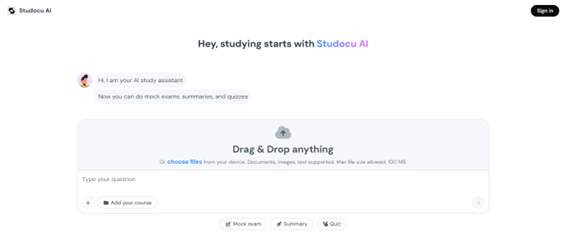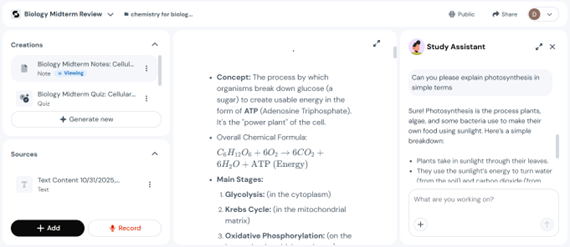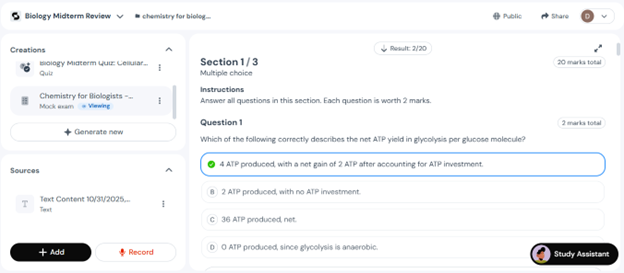5 Reasons You Should Complete a Graduate Certificate
Graduate certificates are postgraduate courses that can help to enhance your career, providing you with new skills and experience to move into different roles, enjoy a career change, or feel more confident in your current role. Deciding whether a graduate certificate is the right move for you can be challenging, especially if it involves a return to education after a break.
Luckily for you, we are here to help, with five reasons why you should complete a graduate certificate to help you make your decision today.
Understanding the Difference Between a Graduate Certificate and a Graduate Diploma
Before we delve into our reasons, we need to address the distinction between graduate courses, specifically a graduate certificate and a graduate diploma. Both are postgraduate qualifications, sitting above a bachelor’s degree, but below a master’s degree. The biggest difference between them is that a graduate diploma is a larger qualification than a graduate certificate.
A graduate diploma consists of eight units that must be completed to pass the course, whereas a graduate certificate contains only four units, making it faster to complete. A graduate certificate is the perfect option if you are looking to gain foundational knowledge without needing to commit to the length of a graduate diploma. They are also stackable, with many course providers allowing you to progress to a graduate diploma if you wish, by transferring your completed four units, thereby reducing the length of time it takes to complete your graduate diploma. It is worth remembering this difference when looking for your postgraduate course and choosing the right option for you.
Now, let’s move on to the reasons why you should complete your graduate certificate!
1. You Can Balance Work and Study
Graduate certificates are an excellent way to balance studying alongside work and your other commitments, so you won’t need to take a career break to gain new knowledge and skills. Many graduate certificates can be completed online, with complete flexibility, allowing you to study at the right time, from anywhere across the country. The flexibility allows you to balance your commitments with studying, without the pressure of attending in-person classes or exams.
Many graduate certificates offer multiple intakes throughout the year, rather than the traditional annual entry points typically found at universities. Course providers, like the University of Canberra, for example, offer entry every three months, so you never need to wait to begin your program.
2. It Provides a Clear Path to Career Advancement
Graduate certificates offer a shorter timeline than other educational paths, taking several months rather than years to complete. Even when you complete the course part-time, it can take under a year, where you will work through one unit at a time, ensuring you fully understand the materials before moving on.
A shorter timeframe for the course enables you to focus on career progression, acquiring the knowledge and skills you need quickly to transition into new roles. Studying in this way is also very beneficial, as you can stay engaged with the content without it feeling like it is dragging on for years or without an end in sight.
3. You Gain Knowledge and Skills
Completing a graduate certificate allows you to gain specialised knowledge and skills that can set you apart from others, making it easier to move into new roles and senior positions. Graduate certificates are the perfect way to develop expertise in specific industry sectors, targeting today’s challenges to ensure you receive the most up-to-date knowledge.
Graduate certificates, such as those in education, can provide more recent knowledge and skills to help you transition into STEM and leadership roles, with an awareness of today’s education challenges, including handling AI, changing behaviours, and inspiring the next generation. Having the most recent education knowledge and skills will set you apart from other educators, making it easier for you to secure roles and promotions.
4. You Have a Personalised Pathway
Graduate certificates offer flexible pathways that are easy for you to personalise, tailoring your education to meet your career goals. There is no limit to the number of graduate certificates you can complete, allowing you to continue gaining knowledge and skills, thereby enhancing your career with every course. You can use the courses to help you move into different careers or roles, too, providing you with an understanding of new areas and sectors before applying to ensure it’s the right move for you.
5. You Can Enhance Your Career Prospects
Ultimately, a graduate certificate is an excellent way to enhance your career prospects, equipping you with skills and knowledge that distinguish you from other candidates. It also demonstrates your commitment to professional development and continuous learning, traits that employers are actively seeking.
Not only can these courses make it easier to enjoy new roles, but they can also open doors to higher-paid positions. Graduate certificates are an excellent way to transition into higher-paid roles and negotiate a higher salary with your employer, reflecting your enhanced knowledge and skill set.
Find Your Graduate Certificate Course Today
Graduate certificate courses are excellent options, and one that we recommend for anyone looking to enhance their career. Graduate certificate programs, such as those offered by the University of Canberra, provide a perfect opportunity to acquire new skills with complete flexibility. Check out the graduate certificates they offer, including their postgraduate certificate in education, to make the next step in advancing your career today.














